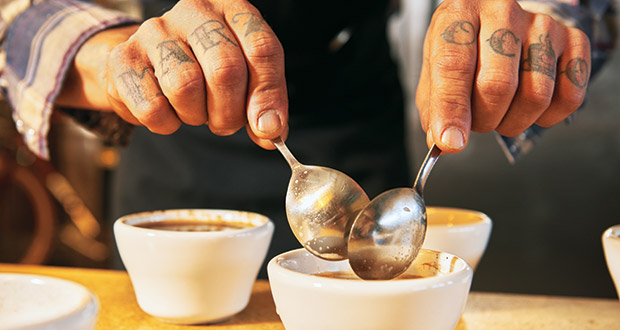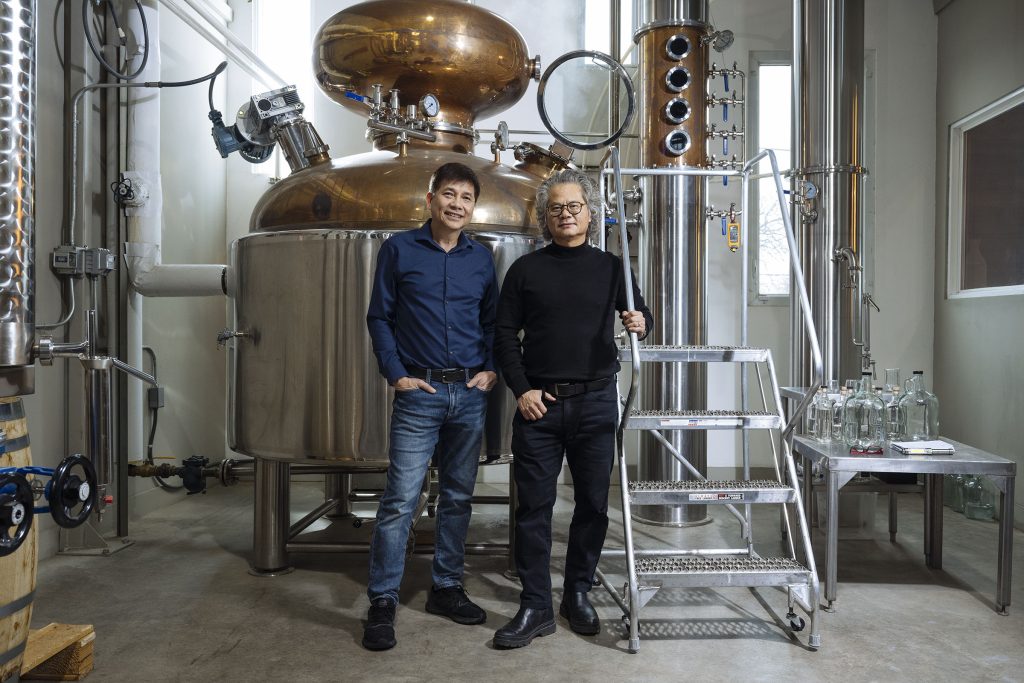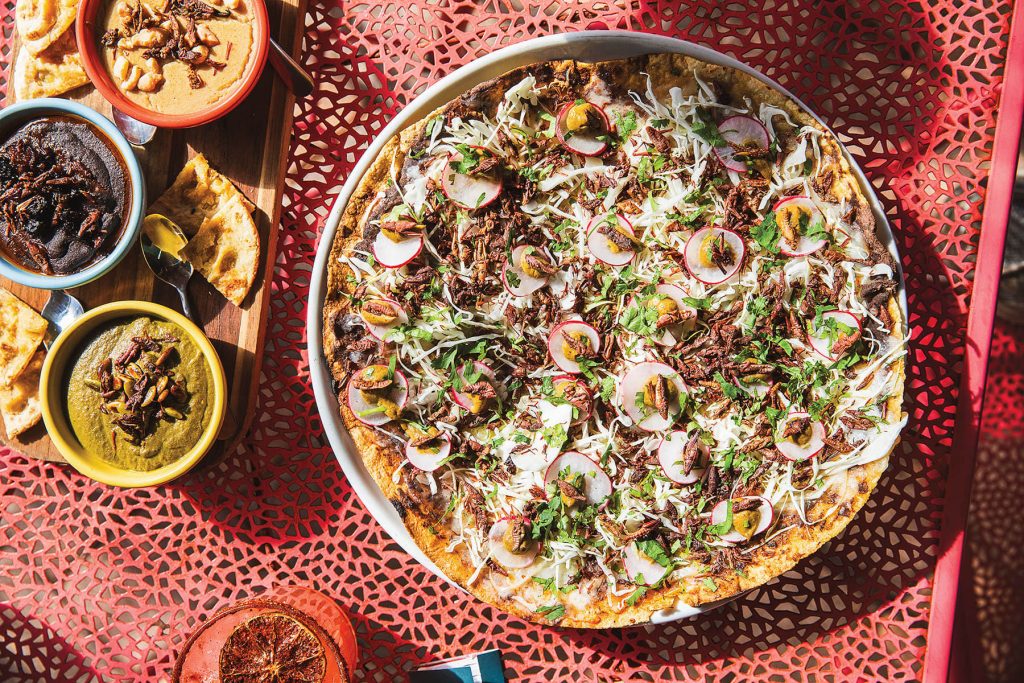
Avoca’s coffee "cupping" classes teach customers how to better appreciate the aroma and flavor of America’s favorite energy drink.
I was 35 when I went to Paris for the first time, which coincided with my first cup of coffee. By the end of the 11-day trip, Paris had turned me into a coffee fiend. But I didn’t know the first thing about my new favorite drink.
Avoca Coffee Roasters is at 1311 W. Magnolia Ave. in Fort Worth. Hours: Mon–Sat 7 a.m.–10 p.m., Sun 7 a.m.–6 p.m. Call 682/233-0957.
More Craft coffee in Cowtown
Here are a few other spots to satisfy your craft coffee jones in Fort Worth.
Brewed is at 801 W. Magnolia Ave. Call 817/945-1545.
Buon Giorno Coffee Co. is at 915 Florence St. Call 817/698-9888.
Craftwork Coffee Co. is at 4731 Camp Bowie Blvd. Call 817/737-4169.
Luckily, I live in Fort Worth, which has a well-established and growing craft coffee culture. The arguable leader of this brewing movement is a funky 2,000-square-foot shop called Avoca Coffee Roasters, which became the first wholesale and retail coffee company in Fort Worth when it opened in 2011. It’s located in Fort Worth’s Near Southside neighborhood, which is filled with independent restaurants, bars, and restored Craftsman-style homes from the early 1900s.
Not only does Avoca—which means “great mouth” in Gaelic—brew and sell its internationally sourced selection of beans to restaurants and other coffee shops across the state, but it also teaches classes for restaurant owners and regular folks on palate education through bean selection, latte art, roasting and brewing techniques, and a sensory experience known as “cupping.” Here, my thirst for knowledge could fully be quenched and caffeinated.
Behind the coffee shop’s wooden counter, which is topped with succulents and bags of ground coffee, Avoca’s baristas prepare coffees and open bottles of Topo Chico while they talk about art and music. Customers perched at wooden tables and curled up in deep leather sofas sip coffee, work on their laptops, and chat quietly with one another. I can smell the earthy, sweet fragrance of coffee beans in a mix of aromas from the shop’s cakes, scones, cookies, and other baked goods, most of which come from Stir Crazy Baked Goods down the street.
The blue-green mural covering the back wall makes me imagine a psychedelic trip through a rainforest. And while there’s a rotating display of locally made artwork for sale at Avoca, the primary art form here is creating the perfect brew. Garold LaRue, a fifth-generation coffee farmer who runs Avoca with co-owner Jimmy Story, knows his beans and his business.
In the adjacent room that houses Avoca’s roasting facility, LaRue encourages me to plunge my hand inside a burlap bag of green, unroasted coffee beans from Ethiopia; they feel cool and smooth, and they clack against my silver rings. My cupping class is about to begin, and we joke that it’s the coffee equivalent of a wine tasting with a different sort of buzz at the end.
Apprentice roaster Efrain Quinon-ez—who says he’s been “doing coffee” for more than a decade—sets up the cupping table. First, he places 16 white cups in two lines across a long rectangular table. Eight of those cups contain different types of coffee grounds; the other eight will be used for brewing the coffee with hot water and tasting and smelling the finished product. Cupping, I see, is a carefully controlled science experiment.
After the hot water is poured into the coffee grounds and four minutes pass, LaRue breaks the crust with his spoon and dips it inside the cup. Leaning down, he brings a spoonful of the dark liquid up to his nose, closes his eyes, and inhales through his nostrils. “I’m not thinking about anything when smelling,” he says. “I’m just taking in the information without bringing any assumptions.” That information, he says, helps him create a consistent product for his customers.
Smelling the aroma of fresh coffee from different parts of the world is almost as revealing as tasting it. As I go around the table, even my untrained nose can discern coffees with fruity, spicy, or nutty aromas.
Quinonez tells me that the table is set up in order from lightest to darkest roasts, with a decaffeinated version in the middle. This aroma of carefully curated beans is so far removed from the mass-produced coffee my dad sipped when I was growing up that it seems like a different drink entirely.
In the coffee world, I learn, slurping is an essential part of the tasting process, because the slurping motion aerates the coffee across your entire palate—letting it touch every taste bud. So, the thinking goes, the louder the better, and LaRue slurps like a king. “Slurp louder!” Quinonez calls out playfully. Letting go of inhibition, I take a loud slurp of coffee like I’m drinking the last drops of my grandmother’s signature soup from a bowl.
My favorite brew from the table is the La Selva roast from Chiapas, Mexico. It has a spicy aroma with hazelnut and milk chocolate flavors, and with a rich body. LaRue likes them all, but he says that a cup of Ethiopian Misty Valley at home with toast and hard cheese is a good snack.
Five years ago, it was hard to find a well-prepared cup of coffee in Fort Worth, LaRue says, but these days, craft coffee is readily available across North Texas—with four craft coffee shops in Fort Worth alone. And early this summer, Avoca will open a second location in Fort Worth’s trendy West 7th District. It’ll provide more space and time for classes and the conversations that inevitably ensue over a fine cup of coffee. By the time I make a return trip to Paris, I’m bound to be a connoisseur.








